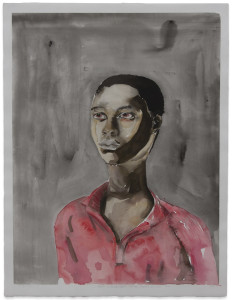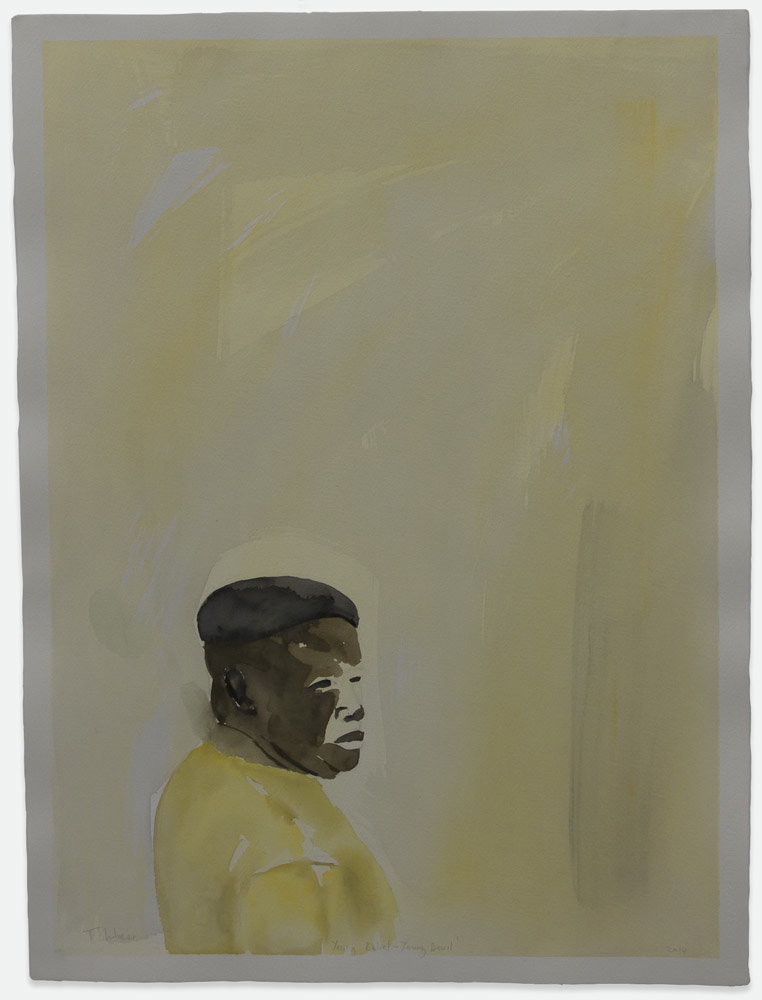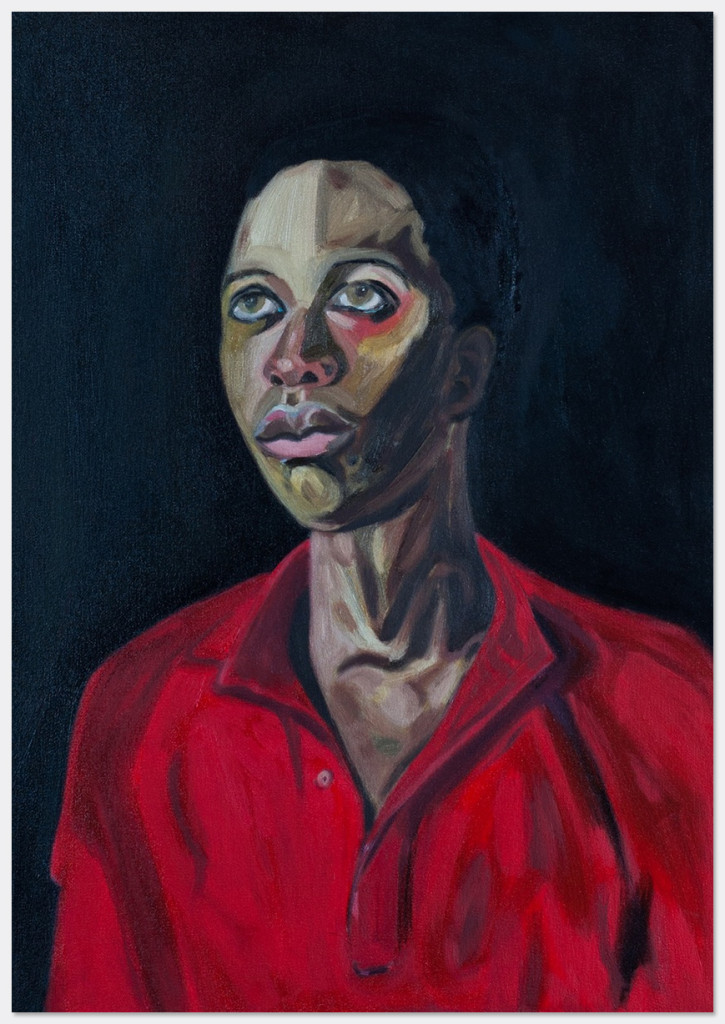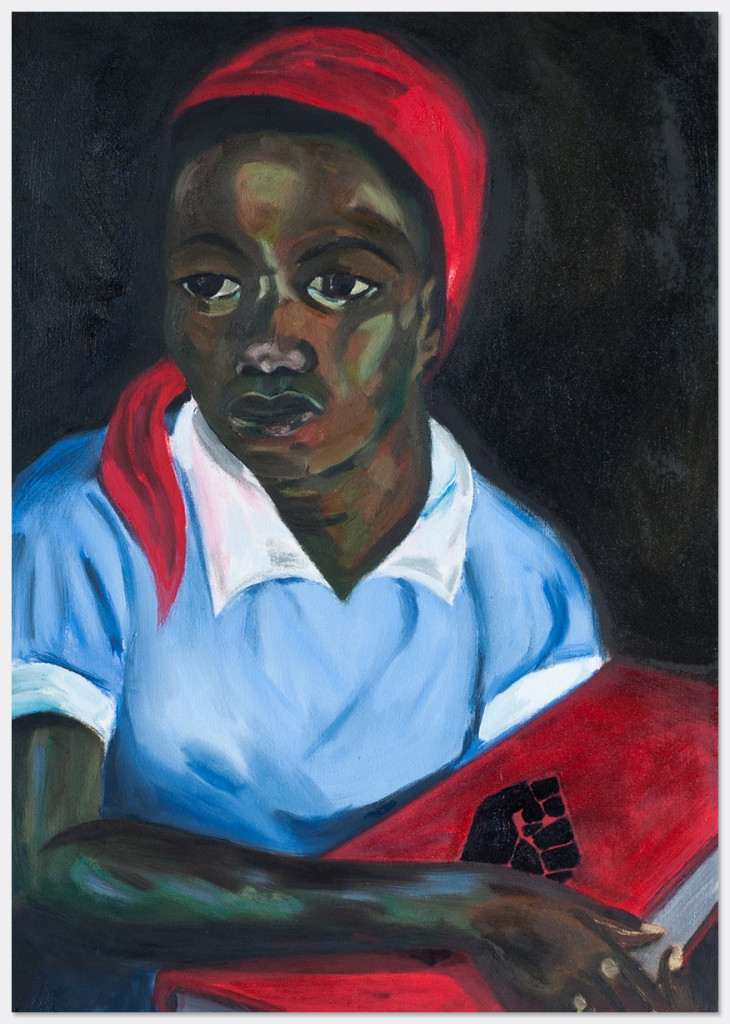
Themba Shibase, Port Shepstone, South-Africa
Youth in Red Shirt, 2014.
About:
Themba Shibase is a contemporary artist who interrogates current political and social issues within a pan-African context. Concentrating primarily on painting and mixed media (including drawing), Shibase’s work falls stylistically and conceptually, within the broad definition of “new painting”.
Young Rebel – Young Devil, 2014.
Employing a unique and fresh visual language, Shibase addresses large and generation-defining issues, such as: leadership; post-colonial and ‘post-dictatorial’ power structures; masculinity, identity, gender and gay politics; as well as the complex challenges facing a young aspirational generation grappling with culture and heritage within a rapidly changing global and digital world. At first glance, Shibase’s works are skilful, confident and simple in their execution and they appeal purely on a visual level. Closer inspection and analysis of the content reveals layers of subtle innuendo, resulting in an overall, uncomfortably direct confrontation for the viewer.
Defiant Youth, 2014.
A good example is a simple, contemporary-styled painting of a youthful Che Geuvara. The subject is immediately recognisable and holds cult status across the board (amongst the new young capitalists, the radical and disenfranchised youth as well as the older revolutionary and struggle generation), thereby Shibase draws the viewer into a position of relative comfort. In contemporary culture, the image has become so iconic and has filtered into numerous forms of commodification and cultural appropriation (as will undoubtedly happen with the image of Nelson Mandela). The image of Che Geuvara has evolved and means something entirely different today, compared to as little as twenty years ago – it has moved into the realms of pop culture, fashion and contemporary art. In the painting, Shibase has given Che a very specific (ambiguous) gaze, an earring and an aids ribbon on his chest, making this “Gay Che” a lot less palatable for the older guard and in so doing, an apparently innocuous and seductive painting becomes very current, direct and provocative, especially given recent developments in countries such as Ghana and Nigeria. This depth in meaning and introspection is characteristic of Shibase’s work in general and his willingness to challenge head-on is courageous and emblematic of an emerging critical class of Africans who are intent on breaking down taboos, prejudices and obstacles which threaten their generation and the potential of a brighter future.
Young Women with Red Doek and the Big Red Book, 2014.
In Shibase’s own words, “the post-colonial African leader’s capacity to effectively ‘lead’ has evidently been viewed from a less critical perspective by his fellow Africans. It is noted that, after all, he was very instrumental in the emancipating of the people of his land from the exploitative rule of the former colonizer; hence, he still holds a heroic position in the eyes of those he rules. It is this complacent perspective of the so called “Struggle Veteran Leader” that has resulted in many post-colonial African leaders managing to evade solid criticism and condemnation for brute and autocratic leadership, which in some cases can be equated to that of colonial rule itself.”
Themba Shibase was born in Port Shepstone about 120 km south of Durban. He later moved to Durban where he now lives and works. Apart from his work as an artist Shibase also teaches painting and art theory at the Durban University of Technology (DUT). Themba Shibase was nominated as one of the finalists for the MTN New Contemporaries Award 2008 as well as the Spier Contemporary 2007.
Courtesy: SMAC ART GALLERY, CAPE TOWN, The Palms, 145 Sir Lowry Road, Woodstock, 7925



